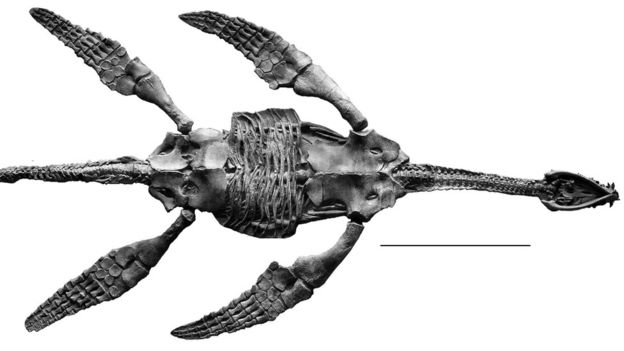Mi weekly selection #160
Mi weekly selection #160

Plesiosaurs swam ancient oceans like penguins
Plesiosaurs swam much like penguins do, using their front flippers to propel themselves and their back ones to control their direction. How the ancient marine reptiles moved through water was unclear since its fossils were discovered about 200 years ago. Researchers developed a computer model based on a nearly complete Jurassic-period fossil to determine how the creature moved.
Scientists seek to explain Earth’s early magnetic core
Two scientists have suggested differing ideas about how Earth could have had a magnetic field billions of years ago. Both say the magnetic core was a result of molten Earth’s crystallizing minerals, but they differ on which mineral was involved. Tokyo Institute of Technology geophysicist Kei Hirose says it was silicon dioxide, while California Institute of Technology researcher David Stevenson says it was magnesium oxide.
Puzzled by higher silica levels in Mars rocks
The composition of rocks studied by Mars rover Curiosity is changing, with specimens showing greater levels of silica.
MERS vaccine shows promise in study on camels
A vaccine that protects against the virus that causes Middle East respiratory virus has been shown to be effective on camels, considered to be the infection’s primary host, and may eventually help humans, according to findings published in the journal Science. Researchers based the vaccine on one used for smallpox.
Silicon neural probes might treat autism, Alzheimer’s
Could silicon neural probes be the foundation to treat Alzheimer’s disease, schizophrenia, epilepsy and autism? According to information presented by Imec, KU Leuven and Neuro-Electronics Research Flanders, the probes have the potential to do so. They facilitate optical stimulation and electronic detection of individual neurons using optogenetics techniques.